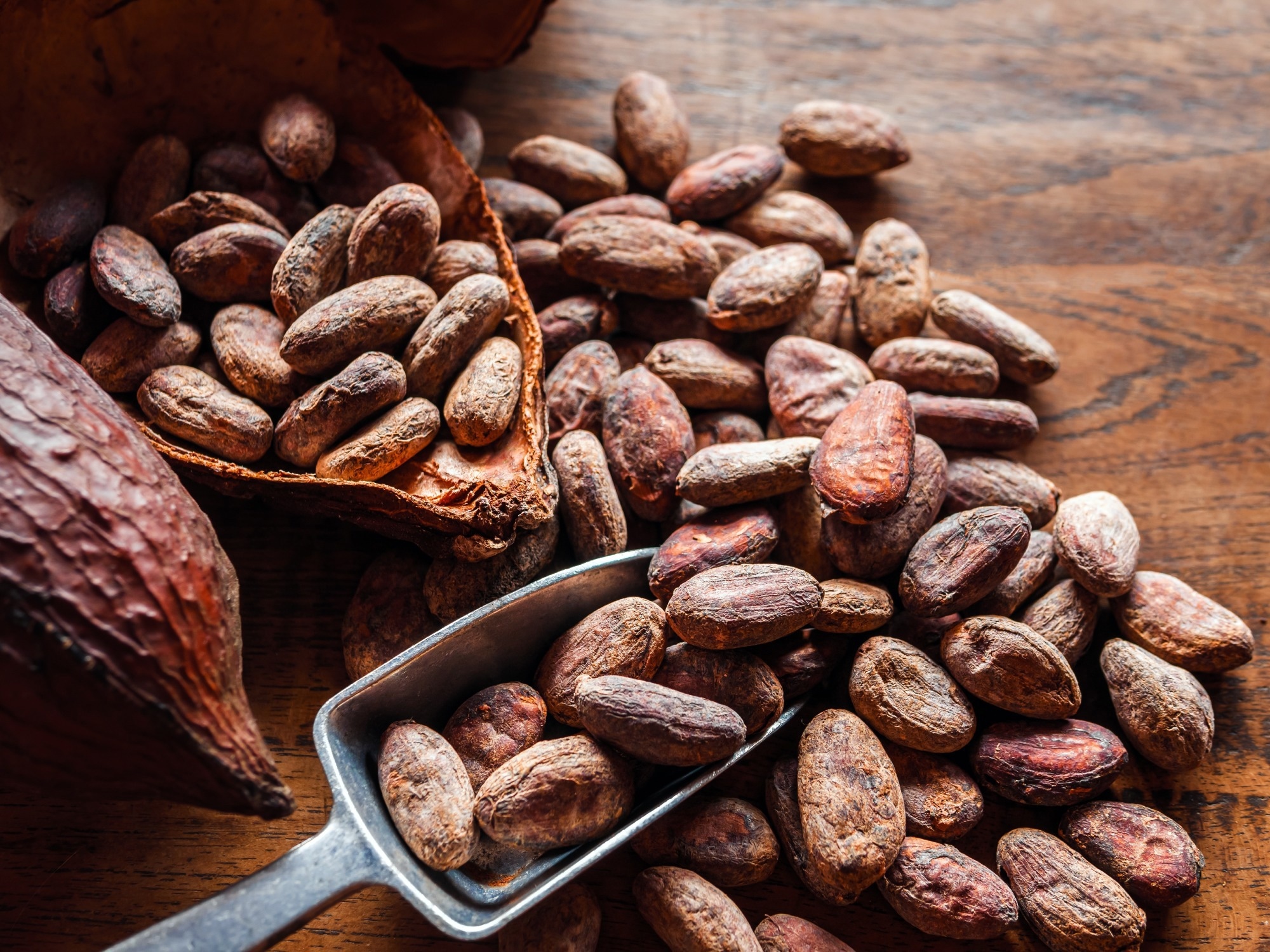Flavonol-rich foods show promise in protecting vascular health during stress, but cerebral benefits remain unclear.
Study: Cocoa flavanols rescue stress-induced declines in endothelial function after a high-fat meal, but do not affect cerebral oxygenation during stress in young, healthy adults. Image Credit: Narong Khueankaew/Shutterstock.com
Stress and unhealthy dietary choices often go hand-in-hand, creating a vicious cycle that can negatively impact cardiovascular health. Acute mental stress is known to impair vascular function, increasing the risk of cardiovascular disease (CVD) over time.
This issue is further compounded when individuals under stress consume high-fat meals, which are associated with delayed vascular recovery. A recent study published in Food & Function investigated whether cocoa flavonols—compounds found in certain fruits, vegetables, and cocoa products—could mitigate these harmful effects.
The randomized, double-blinded, crossover study involved 23 young, healthy adults who were given a high-fat meal (56.5 g of fat) accompanied by either high-flavonol cocoa or low-flavonol cocoa.
The participants then underwent an acute stress task designed to mimic real-world mental stress. Researchers measured vascular and cerebral parameters before and after the stress task to evaluate the protective potential of cocoa flavonols.
Stress, diet, and cardiovascular impairments
Stress has long been linked to acute and chronic cardiovascular problems. Episodes of mental stress can cause transient endothelial dysfunction, reflected by impaired flow-mediated dilatation (FMD) of the brachial artery.
FMD measures how well the blood vessels dilate in response to increased blood flow, serving as a key indicator of vascular health. A decline in FMD as little as 1% has been associated with a 9-13% increase in future cardiovascular events such as heart attack or stroke.
Simultaneously, stress influences dietary behavior, often leading to increased consumption of high-fat and sugary foods. These dietary choices not only promote weight gain but also exacerbate stress-related impairments in vascular function.
Fat consumption during stressful periods has been shown to impair endothelial recovery, delaying the return to normal vascular function after a stressful event.
Key findings from the study
Peripheral vascular benefits of flavonols
In this study, consuming low-flavonol cocoa resulted in significant FMD impairments following stress. At 30 minutes post-stress, FMD decreased by 1.29% compared to baseline and remained 1.11% below baseline at 90 minutes. This delayed recovery highlights the combined detrimental effects of stress and high-fat meals on vascular health.
Conversely, participants who consumed high-flavonol cocoa exhibited markedly different results. At 30 minutes post-stress, FMD impairment was minimal, and by 90 minutes, FMD had improved by 1.37% above baseline levels. This improvement not only counteracted the stress-induced vascular damage but also surpassed pre-stress vascular function.
These findings suggest that cocoa flavonols can play a significant role in protecting endothelial function during periods of combined dietary and mental stress.
Flavonols are thought to exert their beneficial effects by increasing nitric oxide (NO) bioavailability, which enhances blood vessel dilation. They may also reduce oxidative stress and inflammation, further supporting vascular health.
Cerebral oxygenation and limitations
While flavonols effectively improved peripheral vascular function, they did not significantly impact cerebral oxygenation during stress. Both groups showed similar increases in oxygen delivery to the prefrontal cortex, reflecting normal stress-induced cerebral responses. This contrasts with previous studies where flavonols improved cerebral oxygenation under conditions of hypercapnia (elevated carbon dioxide levels) or hypoxia.
The lack of significant effects on cerebral oxygenation may be attributed to several factors. The high-fat meal could have delayed flavonol absorption, reducing their bioavailability during the stress task. Alternatively, the brain’s tightly regulated blood flow mechanisms may have limited the potential for flavonols to enhance oxygenation.
Implications for diet and stress management
The results of this study underscore the importance of dietary choices during periods of stress. Incorporating flavonol-rich foods, such as cocoa, green tea, or berries, into the diet may help counteract the harmful effects of stress and high-fat consumption on vascular health.
The dose of flavonols used in this study—equivalent to two cups of green tea or 5.5 tablespoons of unprocessed cocoa—can be easily integrated into daily meals.
These findings are particularly relevant in the context of modern lifestyles, where stress levels are high and access to healthy food options is often limited.
Stress-related overeating and poor dietary habits are significant contributors to the global rise in obesity and CVD. Nutritional interventions that include flavonol-rich foods could serve as a simple yet effective strategy to mitigate these risks.
Limitations and future directions
While the study provides valuable insights, several limitations must be considered. The sample size was relatively small, and the participants were primarily young, healthy adults.
This limits the generalizability of the findings to older populations or those with pre-existing health conditions. Additionally, the study did not tailor the high-fat meal to participants’ metabolic rates, which may have influenced individual responses.
Further research is needed to confirm these findings in larger, more diverse populations. Future studies could also explore the long-term effects of regular flavonol consumption on both peripheral and cerebral vascular health.
Investigating the interaction between flavonols, stress, and the gut microbiome could provide deeper insights into the mechanisms underlying these protective effects.
Conclusion
This study highlights the potential of flavonol-rich foods to protect vascular health during stressful periods, particularly in the context of unhealthy dietary choices.
By attenuating stress-induced declines in FMD, cocoa flavonols offer a promising dietary strategy to reduce the risk of future cardiovascular events. However, their effects on cerebral oxygenation remain inconclusive, warranting further investigation.
Given the increasing prevalence of stress and its association with poor dietary habits, these findings have important implications for public health. Encouraging the consumption of flavonol-rich foods could be a practical, accessible approach to mitigating the cardiovascular risks associated with stress and unhealthy diets.
Journal reference:
-
Baynham, R., van Zanten, J. J. C. S. V., and Rendeiro, C. (2024). Cocoa flavanols rescue stress-induced declines in endothelial function after a high-fat meal, but do not affect cerebral oxygenation during stress in young, healthy adults. Food & Function. doi: https://doi.org/10.1039/D4FO03834G.
Source link : News-Medica

